The Order of Civil Disobedience: How “Harry Potter” Inspires Activism
It’s a unique experience to read Harry Potter and the Order of the Phoenix in 2020. The book carries strong parallels to the pronounced surge in activism seen lately. There have been calls for social justice and reform across the globe; key movements and issues include Black Lives Matter, LGBTQ+ rights, wealth inequality, and much more.
Amid the ongoing discourse, I have seen an interesting perspective again and again: Growing up within the Harry Potter fandom has contributed to raising a generation eager to practice civil disobedience, stand against systemic injustice, and lift up the voices of the marginalized and oppressed.
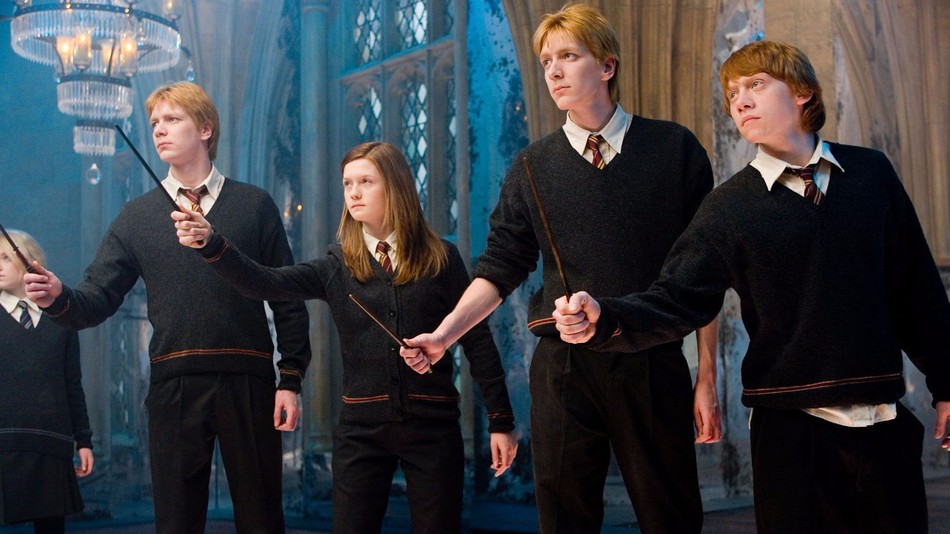
Civil disobedience as a concept was espoused by transcendentalist essayist Henry David Thoreau who said, “Unjust laws exist: shall we be content to obey them… or shall we transgress them at once?” Stanford Encyclopedia of Philosophy describes modern civil disobedience as falling “between legal protest… and conscientious refusal, revolutionary action, militant protest and organised forcible resistance.” Harry Potter showcases the merits of civil disobedience, and the fifth book stands out in this regard.
Earlier books hint at the Ministry of Magic’s flaws, but the fifth book shows the reader how the magical government’s modus operandi is downright dangerous. Much like the fictional members of the Order of the Phoenix and Dumbledore’s Army, citizens the world over have been raising the alarm regarding blatant disinformation, discrimination, corruption, and inaction during crises.
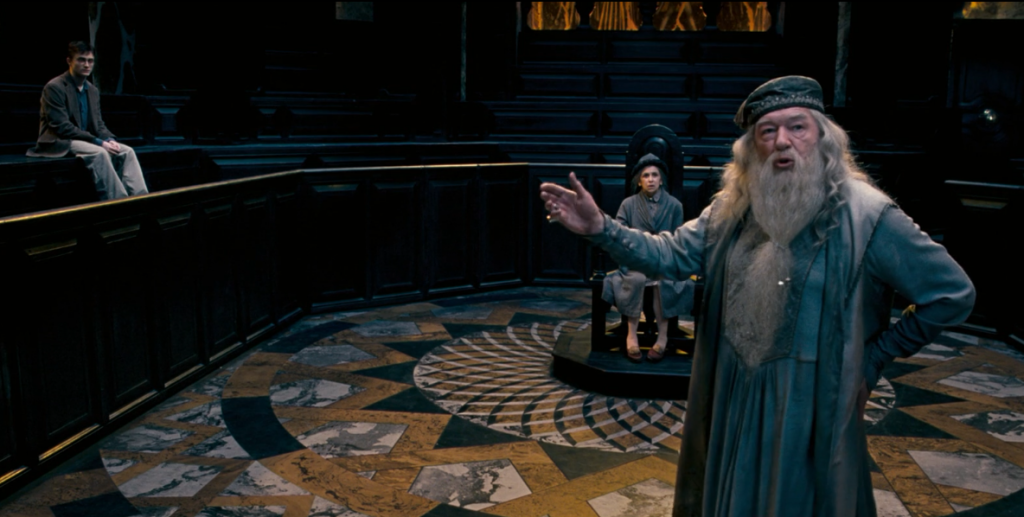
First, there’s the Order itself. When the Ministry chose not to act, this secret society took up the mantle of curbing Voldemort’s rise to power. Dumbledore began by making a speech announcing Voldemort’s return; he then strove to recruit others to the cause despite those in power working to discredit him. This mirrors the actions of brave leaders risking their careers, reputations, and even safety to speak out and spread the truth.
For example, Lieutenant Colonel Alexander Vindman testified in Trump’s impeachment proceedings. Like Vindman in real life, Dumbledore lost his government title and became the victim of slander. There are many other real-life examples: Representative Alexandria Ocasio-Cortez was vilified for speaking out about being sexually harassed by a fellow legislator.
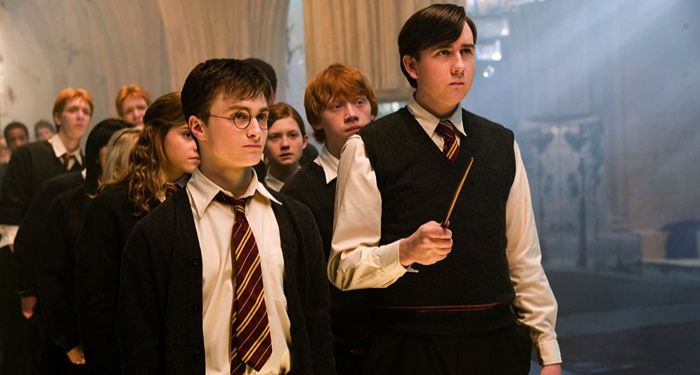
Dumbledore’s Army was born when it became clear that 1) the Ministry feared what the Order and other dissenters were capable of and 2) Dolores Umbridge was doing everything in her power to keep the students of Hogwarts in the dark and ill-equipped to do anything about Voldemort’s rise to power. Young witches and wizards were fed up and hungry for action; they wanted to take their education into their own hands. They wanted to be ready when their lives and the lives of others were in danger, which did come to pass despite Umbridge’s insistence otherwise.
Young people in 2020 are similarly taking the initiative when it comes to education on the issues they care about. By developing and sharing educational TikTok videos, Instagram infographics, free crash courses, and online book clubs, this generation has made it easier than ever to become informed on topics like anti-racism and the history of voter suppression. In a way, it seems that no one should be surprised that the kids who grew up reading about Dumbledore’s Army would become critical of what was missing from their curriculum and seek to empower themselves to learn more.
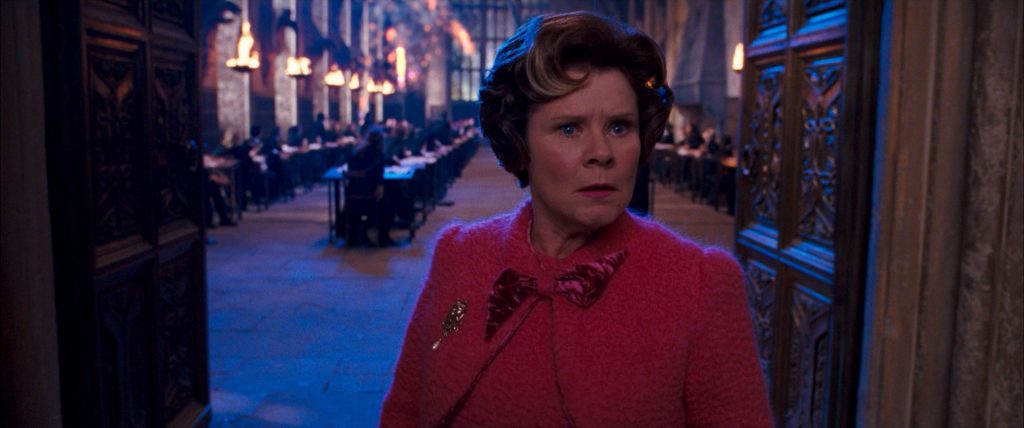
Protesters exercising their rights and resisting in the face of force are practicing civil disobedience. People are taking to the streets to support those who have been marching for generations, witnessing firsthand the prejudice faced by the Black community and other minority groups. The Wall of Moms at the Portland protests comes to mind; mothers, fathers, veterans, and people from all backgrounds are showing up in solidarity, forming human shields to protect the vulnerable and defy tyranny.
Though there are stronger examples of privileged characters protecting the vulnerable from harm in later books, Order of the Phoenix introduces one such group: the Hogwarts staff. With Umbridge lording over the school and hinting at the fascist state that would befall the wizarding community by the seventh book, professors like McGonagall, Flitwick, and even Snape foiled her plans and actively refused to aid her.
Consider Flitwick, who is more than capable of cleaning up the mess of disruptive fireworks set off by the Weasley twins, when he tells Umbridge, “I could have got rid of the sparklers myself, of course, but I wasn’t sure whether I had the authority” (OotP 634). Other examples include Sprout giving Gryffindor House extra points, Trelawney uncharacteristically predicting Harry’s prosperous future in front of Umbridge, and Snape providing fake Veritaserum to protect students from being drugged against their will.
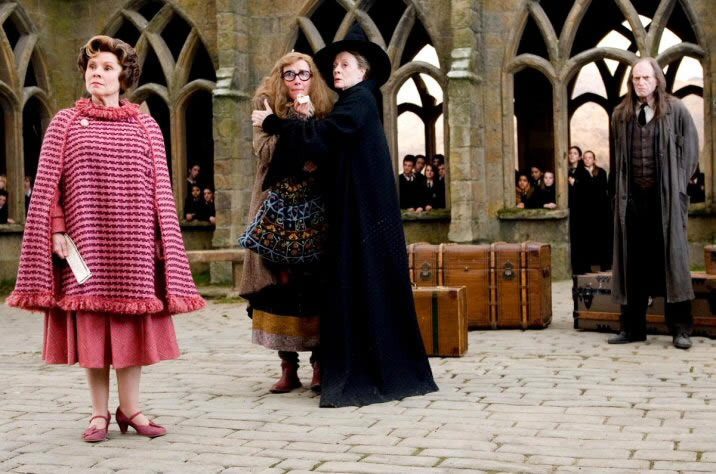
Harry suffered unimaginable trauma at the hands of Voldemort, the Ministry, and the Prophet in Order of the Phoenix. He felt totally alone in the fight against oppression and wickedness. Nevertheless, Harry and his friends found that by uniting, they were powerful against their foes with many faces. These characters inspired a generation to become dedicated activists even in the face of a seemingly impossible fight. Order of the Phoenix teaches us that civil disobedience makes a difference.

